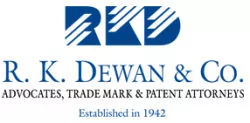The Indian Patents practice has come a long way vide continuous amendments, India's accession to international conventions and treaties etc. This has led to increase in the number of foreign filings in India. The amendment of rules often leads to confusion in relation to prosecution of patent applications filed prior to the amendment. For example, under the earlier Patents Rules, the 31 month deadline for entry into the national phase in India could be extended by one month, under certain circumstances, by filing a petition under rule 138. However, under the amended Patents Rules, which came into effect from 15th May 2016, the 31 month deadline for entry into the national phase in India, cannot be extended under any circumstances. The amended rules have made this abundantly clear by specifically excluding rule 24(4)(i) from the purview of the Controller to extend any prescribed time limits (by way of a petition under rule 138). Recently, in the case of Snecma vs Union Of India And Anr., the Petitioner (Snecma) filed an Indian national phase patent application corresponding to PCT/FR/2014/050623 on 6th November, 2015. This application claimed its priority from a French application filed on 20th March, 2013. The then existing Patent rules, 2003 under rule 20(4)(i) also had a requirement that a patent application should enter the Indian National Phase Patent Application within 31 months of the date of priority. In the present case, the application should have ideally entered the National Phase before 20.10.2015 however, the client filed the application before Controller of Patents on 6th November, 2015. The petitioner had filed applications under Rules 137 and 138 (un-amended Rules) for correction of irregularity and for condonation of delay in filing the application for entering the Indian National Phase. This was followed by the Petitioner filing an application on 3rd March, 2017 for examination of its Patent application by the Controller of Patents; ideally, examination request is to be made within 48 months from the date of priority i.e. by 20th March, 2017. The fee was paid by the Petitioner via cheque instead of the demand draft or other modes laid down under the Rules. The Controllers rejected the application since the payment was not in the prescribed manner. The Petitioner's agent received this communication on 23rd March, 2017; it was also claimed by the Petitioner that via a return mail dated 28th March, 2017 a demand draft along with the supporting documents was dispatched to the office of the Controller. The Controller's office later communicated that the request could not be processed since it was received after the statutory time period i.e. 20th March, 2017, therefore, the banker's cheque containing the official fees was returned.
The Petitioner aggrieved by this decision of the Controller approached the Delhi High Court to seek orders directing the Controller to take record of the request for examination. The counsel for the petitioner stated that Rule 138 under the Patent Rules, 2003 will be applicable to the present case, since the application for entering the National Phase was prior to the Patent Rules, 2016 amendment. This was agreed to by the Court, it was also observed by the Court that the earlier Rule 138 specified that the Controller could permit extension of time only for a period of one (1) month and it could be granted if the application for extension was filed before the expiry of the prescribed period.
The matter was heard and Hon'ble judge ruled that in the present case the application for examination of the application was filed before 20th March, 2017 and the only grounds for rejection of the same was the fact that the fees was not paid in the prescribed mode and manner. Furthermore, the Controller himself had called upon the Petitioner's agent to re-submit the documents along with fees via a demand draft/banker's cheque or cash. Therefore, it was held that the Controller erred in ruling that the Petitioner had not filed the request for examination within the statutory time period and therefore, the application should be accepted and should be processed further. This decision permits the Controller of Patents to observe leniency in cases where the delay is due to delay in delivery of official communications etc. In matters concerning Patents, Trade Marks and Copyrights often a delay in delivery by the registered post can cause documents to be delivered after the statutory time limit, such delays should be condoned to avoid any permanent harm that maybe caused to the applicant.
The content of this article is intended to provide a general guide to the subject matter. Specialist advice should be sought about your specific circumstances.

